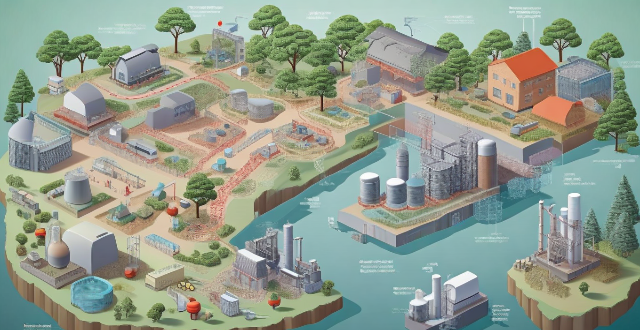Climate change is significantly impacting the insurance industry by increasing natural disasters, altering liability exposures, and prompting regulatory changes. Insurers must adapt to these challenges by updating risk assessment models, complying with new regulations, shifting investment portfolios towards sustainability, and innovating products. This adaptation is crucial for insurers' financial resilience and their role in aiding societal adaptation to climate change.

How is Climate Change Affecting the Insurance Industry?
Climate change, a long-term alteration in global weather patterns, has profound implications for various sectors of the economy. The insurance industry, which relies heavily on predictable risks and probabilities, is particularly vulnerable to the impacts of climate change. Here's a detailed exploration of how this phenomenon is reshaping the landscape of insurance:
Increased Frequency and Severity of Natural Disasters
*Rising Costs of Claims*
As extreme weather events such as hurricanes, floods, and wildfires become more frequent and intense due to climate change, insurance companies are facing higher payouts for claims. This leads to increased financial pressure on insurers and potentially higher premiums for policyholders.
*Difficulty in Risk Assessment*
Traditional models used by insurers to calculate risk may no longer be accurate as climate patterns shift. This makes it challenging to set appropriate premiums and reserves, leading to potential underestimations of future liabilities.
Changes in Liability Exposures
*Business Interruptions*
Extreme weather can lead to business interruptions, causing revenue loss for companies. Insurers must adapt their coverage to account for these increased risks and potential losses.
*Supply Chain Disruptions*
Climate change can affect global supply chains, leading to indirect economic losses. Insurers need to consider these disruptions when assessing liability risks for businesses.
New Regulatory Environments
*Regulatory Changes*
Governments worldwide are introducing regulations that require insurers to factor climate change into their operations. This includes disclosure requirements about climate-related risks and opportunities.
*Disclosure Requirements*
Insurers are increasingly expected to report on how they are addressing climate change in their business strategies and investment practices.
Shifting Investment Portfolios
*Sustainable Investments*
Insurers are moving towards more sustainable investments that align with environmental, social, and governance (ESG) criteria. This shift aims to mitigate the financial risks associated with climate change.
*Impact on Property Values*
Rising sea levels and other climate impacts can decrease the value of properties, affecting the real estate investments held by insurers.
Product Innovation and New Markets
*Climate-Related Insurance Products*
There is a growing demand for specialized insurance products that cover climate-related risks, such as flood or wildfire insurance. Insurers are innovating to meet this demand.
*Opportunities in Renewable Energy Sector*
The growth of renewable energy sectors presents new insurance needs, offering insurers opportunities to expand their product offerings.
Conclusion
Climate change poses significant challenges for the insurance industry. It requires insurers to adapt their risk assessment models, regulatory compliance, investment strategies, and product offerings. By doing so, insurers can not only protect themselves against financial losses but also play a critical role in supporting society's adaptation to a changing climate.